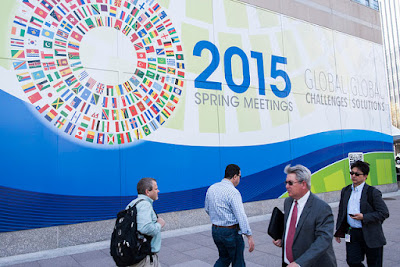I. RESPECT AND CARE FOR THE COMMUNITY OF LIFE
The insight and thoughtfulness that went into the creation of the first part, and all other parts, of the Earth Charter Reflection was immediately evident. The first line alone, "Recognize that all beings are interdependent and every form of life has value regardless of its worth to human beings" is a perfectly written narrative of how humanity should live on a planet with other living beings. We should not view ourselves as the only life forms that matter; other life forms only as valuable as they are valuable to us. I also greatly admire the idea behind living in just and democratic societies whose aims are to provide human rights and fundamental freedoms to all as well as the ability for all to reach their individual potential.
 |
| Photo provided by Pasu Au Yeung on Flickr Oct. 18, 2014
|
II. ECOLOGICAL INTEGRITY
The insight and thoughtfulness continues to the second part of the charter with lines such as, "Adopt at all levels sustainable development plans and regulations that make environmental conservation and rehabilitation integral to all development initiatives". Sustainable living should be our top priority moving forward by managing "the use of renewable resources such as water, soil, forest products, and marine life in ways that do not exceed rates of regeneration and that protect the health of ecosystems". If our planet is going to heal and maintain health and prosperity humanity must change its behavior and live a more sustainable existence. The line that states we must, "Promote the development, adoption, and equitable transfer of environmentally sound technologies" is genius and extremely appropriate for the times in which we live. All nations, regardless financial abilities, must have the proper equipment to live with sustainability in mind. A sound argument for not fully embracing environmental conservation and sustainability is that it only applies to the technologically advances nations that can fund such projects. The nations that can afford sustainability and environmental protection must help other nation financially to work towards the same environmental goals.
III. SOCIAL AND ECONOMIC JUSTICE
The third part to the charter focuses more heavily on human progress and global equality. Human progress and equality has largely only been granted for those in middle to upper class tax brackets living in developed nations; the Earth Charter demands human progress and equality for everyone across the board. "Recognize the ignored, protect the vulnerable, serve those who suffer, and enable them to develop their capacities and to pursue their aspirations," are just actions all should strive towards to ensure global health and peace. If we are to work towards a better world it must include all peoples, not just those who can afford it. |
| Photo provided by Dan H. on Flickr Jan. 31, 2011 |
IV. DEMOCRACY, NONVIOLENCE, AND PEACE
















